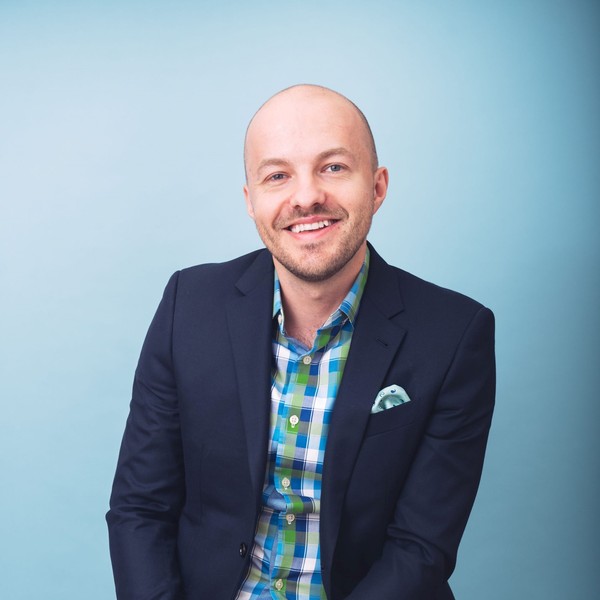
Major(s): Psychology
What is your current role? What was your journey in arriving there?
I’m the founder and owner of Career Fixer LLC, where I operate as an executive coach and career coach. Most of my clients these days are mid- and senior-level professionals. I call myself a “recovering” Human Resources professional because I suffered through a lot of HR jobs that weren’t fully aligned with my calling, before arriving at my true vocation: coaching. I spent nearly a decade working in various functions, mostly focusing on training & development, and across very different organizations–from billion-dollar media companies to small startups, nonprofits, and even a brief stint as a contractor for a local government training and workforce development post. I’ll say that the skills and knowledge I learned in my various HR jobs have been useful, and I’ll always have a soft spot for HR and Talent Development, but I’m glad I carved my own path as a small business owner, “solopreneur” and coach.
What do you enjoy about your work? What do you struggle with?
The thing I keep coming back to is that I am rarely, if ever, the expert in my clients’ professions. But I am exceptionally good at helping them get out of their own way. I work with overthinkers: current and emerging leaders who sometimes put inordinate pressure on themselves in the workplace. I enjoy seeing clients give themselves permission (they certainly don’t need it from me) to show themselves more grace and patience, tackle ambitious and innovative problems, and build skill sets that they’ve neglected or avoided for years (skills like public speaking, leadership, negotiation, change management, leading with emotional intelligence, etc.). Career coaching is a subset of what I do: that is, helping people climb the corporate ladder or leave their company and find greener pastures elsewhere. Often, I work with clients who actually *do* enjoy their current company, boss, job, and career, and they just want to become better, more thoughtful, leaders.
Now that I am an established executive coach and career coach, I don’t exactly struggle with this very much. I made plenty of mistakes when I first established my business, including trying to do everything myself (and manually–to boot). Now I enjoy delegating and automating with the various digital tools at my disposal.
One caveat is that “solopreneurship” can be lonely, especially when you’re working from home, so I’ve made it a point to schedule plenty of in-person lunches and nights out with friends (that includes some former clients). It’s also a business that requires quite a bit of self-promotion and putting oneself out there, whether that’s via LinkedIn content development, appearing on podcasts, or leading webinars–I’ve definitely amped up my game in those areas over the last few years. The market may feel saturated, but nothing beats telling a story and making an impact, even if it’s just to one person, although my audiences are usually a bit bigger than that. Word-of-mouth referrals comprise the bulk of my business, so it’s not as if I’m out there doing a ton of cold/hard selling. But I am out there listening to people, asking good questions, and making connections. Finally, I enjoy mentoring others, including students at Wesleyan University. When I was a student at Wes, the Career Center was very supportive and helpful in my journey from the Wesleyan bubble into “the real world” and it’s nice to be able to give back in this small but hopefully meaningful way.
Do you have any advice for students thinking about entering your industry?
I worked in various jobs and wildly different industries (from tech to publishing, marketing to nonprofits) and gained nearly a decade of diverse experience. This is what enabled me to go off on my own and hang my shingle as the founder of Career Fixer LLC. Working in vastly different environments and across companies large and small grew my adaptability and versatility so that now I can coach professionals who hail from virtually any professional background–as I mentioned elsewhere, I am rarely, if ever, the subject matter expert in my clients’ line of work. And yet, to be an effective coach, I don’t have to be. Sometimes it’s precisely my objective “3rd party” perspective that helps them get out of a rut.
My bit of advice for those who feel lost about choosing a career path is: try various things out. Don’t knock things until you try them–and sometimes twice. For example, your first job in industry X could suck, but that could be a function of having a crappy boss or a poorly-run company rather than a fundamental trait of that industry. Give things a shot. Experiment and explore–throughout your life, but especially when you’re young. Enjoy the ride! Oh, and don’t forget to conduct “informational interviews”–those could be a game changer in your career.
How did your time at Wesleyan influence your career choice/journey?
Majoring in Psychology at Wes, and taking a bunch of courses in every other subject matter imaginable (from art to sociology, biology to politics), opened up my mind to different perspectives, vocabularies, and ways of seeing the world. Super grateful that I didn’t pigeonhole myself into one bucket. Not that there’s anything wrong with hyper-focusing, but that just wasn’t right for me. I fancy myself a multi-disciplinarian, a poly-creative being… and Wesleyan cultivated that in me instead of quashing it, no doubt about that. For that, I will be forever grateful.
Updated as of September 29th, 2023

